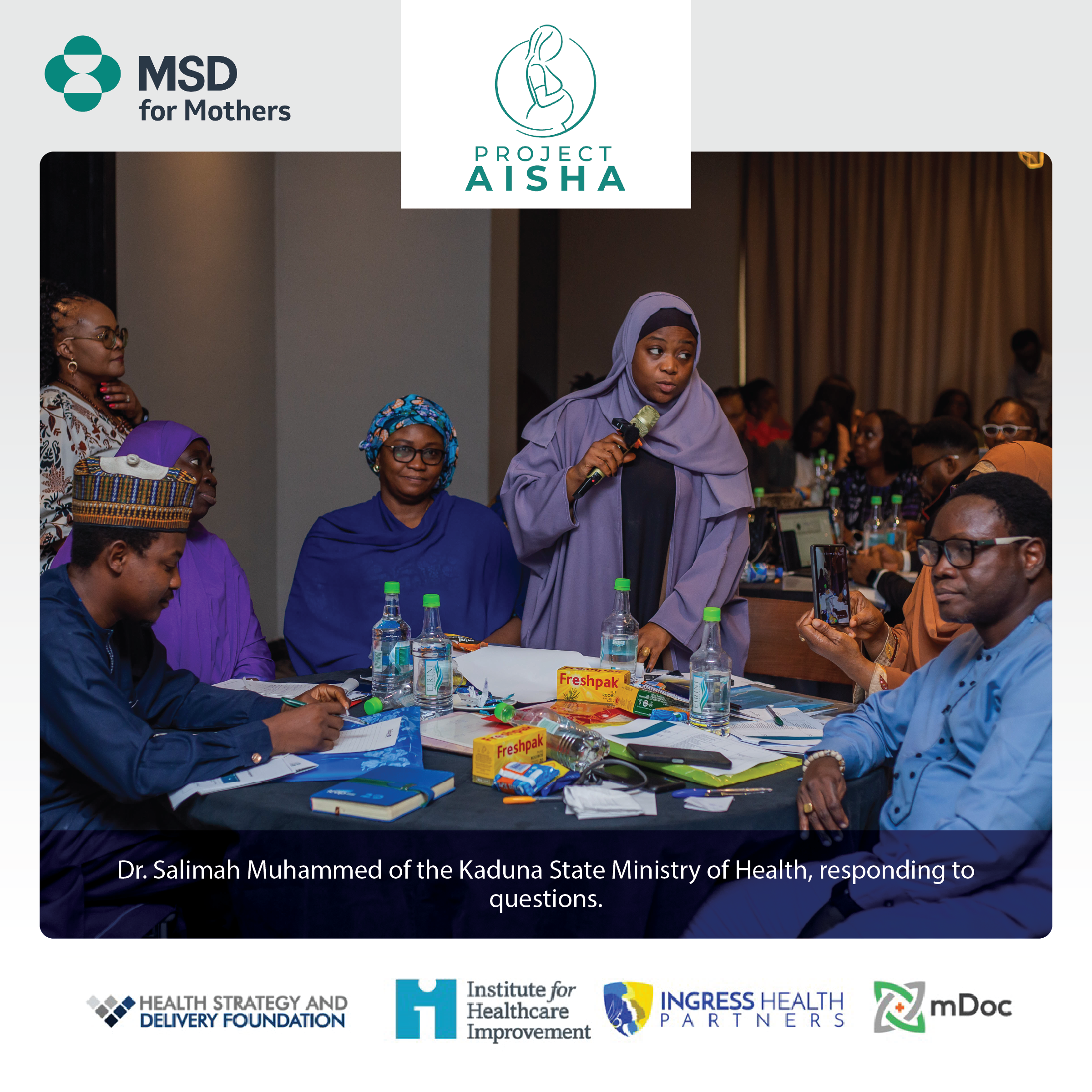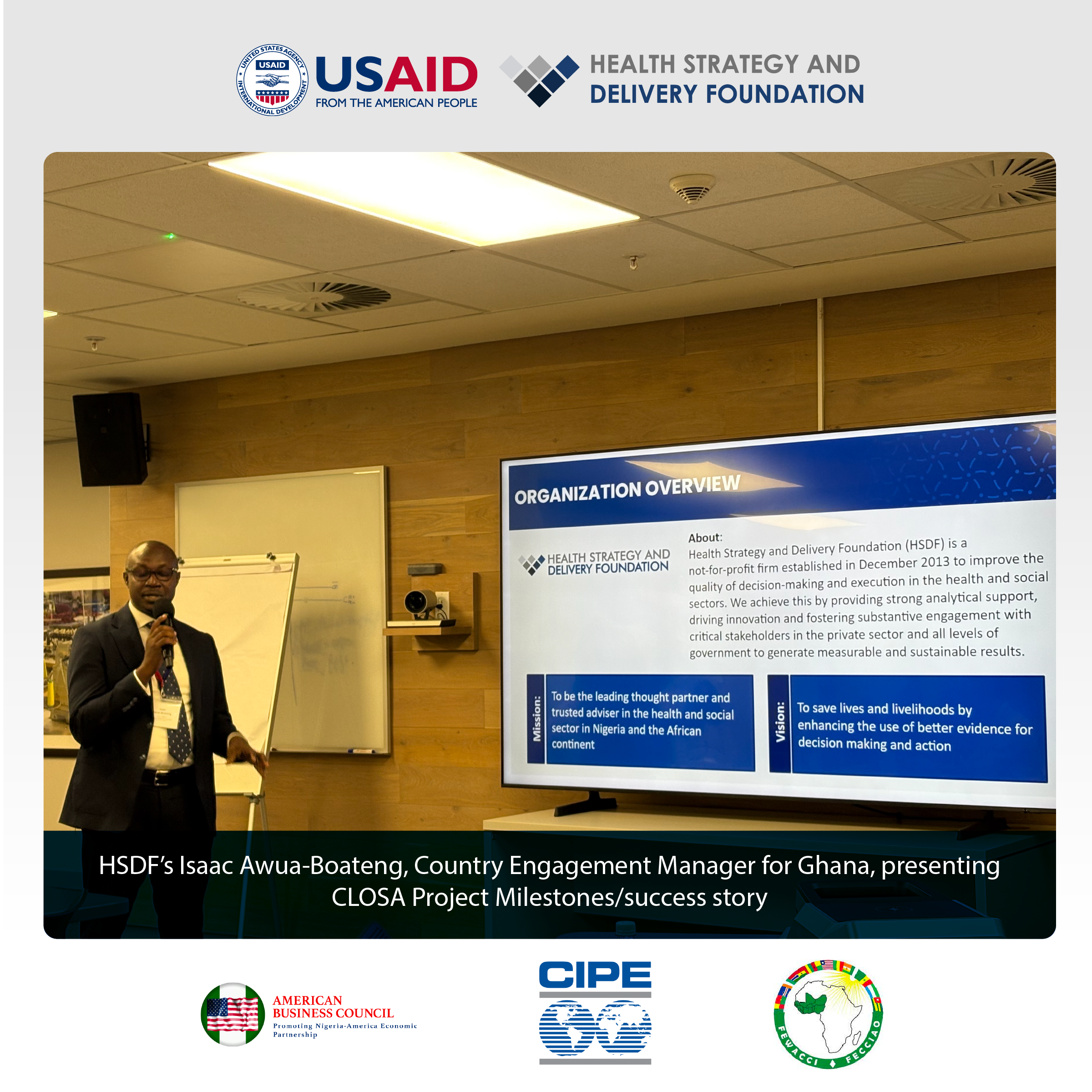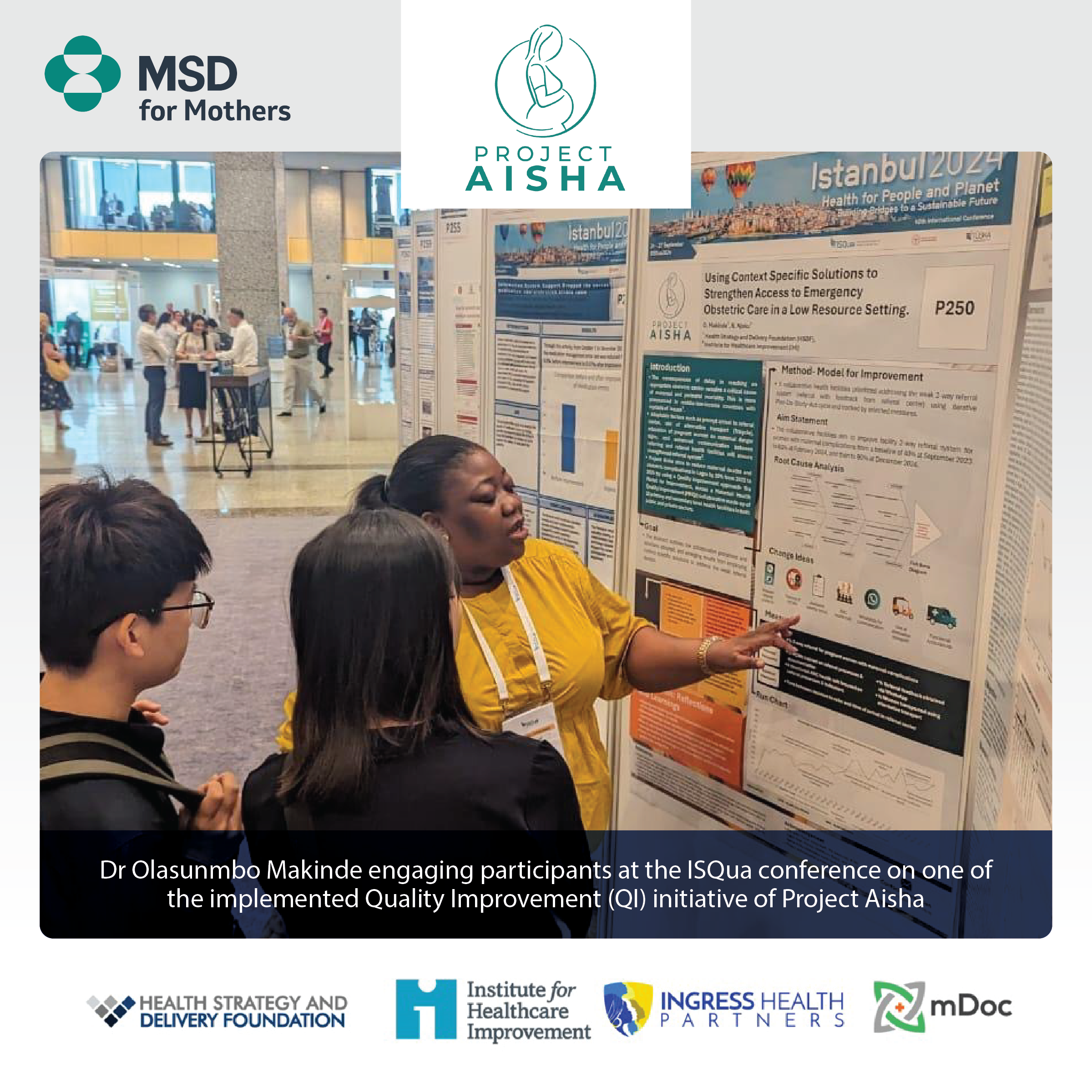World No Tobacco Day 2020
World No Tobacco Day is marked annually on 31st May. The theme for 2020 is “Protecting youth from industry manipulation and preventing them from tobacco and nicotine use.” Globally, it is estimated that about 8 million people die every year from causes related to tobacco use and exposure to second-hand smoke[i]. There is evidence to show that tobacco use is related to 25% of all cancer deaths globally.
Out of the 1.3 billion tobacco users around the world, 80% of them currently reside in Low-and Middle- Income Countries (LMIC),[ii] where health systems face critical challenges. Statistics reveal that about 17.4% of the Nigerian population are smokers [iii]. Globally, tobacco-related ailments account for substantial healthcare and economic costs[iv]. This is particularly of great importance for LMICs like Nigeria, where over 75% of the current health expenditure is borne out-of-pocket[v].
The youths are increasingly lured into smoking through targeted marketing and product promotion strategies of the tobacco industry. These include the use of attractive flavors, sleek product designs, celebrity influencers, and Social Media promotions. The advent of the Electronic Nicotine Delivery Systems- ENDS, (also known as E-cigarettes) and Shisha, which was wrongly presumed to be safer than cigarettes have encouraged many youths to become smokers[vi], [vii]. Not only are these addictive, they also increase the risk of heart disease and lung disorders[viii]. Shisha smoke, on the other hand, has also been found to be just as harmful as other forms of tobacco. [ix]
Following the ratification of the WHO Framework Convention on Tobacco Control (FCTC) in 2005, the Nigerian government in 2015 passed the National Tobacco Control Act, which regulates all facets of tobacco control including packaging, promotions and smoke-free areas. However, the implementation of this policy has been less than satisfactory in the country.
The impact of smoking on health has been well-documented over the years, as cigarette smoking causes many diseases and negatively affects almost all the organs in the body[x]. Cigarette smoking is a leading cause of preventable death globally and increases the risk for cardiovascular diseases, lung disorders, and several non-communicable diseases. Smoking tobacco is associated with several cancers such as lung, tracheal, bronchial, esophageal, bladder, liver, pancreas, stomach, oropharynx, colorectal, etc [xi] For Type 2 Diabetes Mellitus, smoking increases the risk of developing the disease by 30-40% and makes sugar control more difficult when compared with nonsmokers[xii].
Recognizing that tobacco smoking is one of the risk factors for developing diabetes, the Health Strategy and Delivery Foundation (HSDF), through its Diabetes Awareness and Care (DAC) funded project, has trained about 250 health workers in Imo State and the FCT on the dangers of tobacco smoking and counseling clients for smoking cessation.
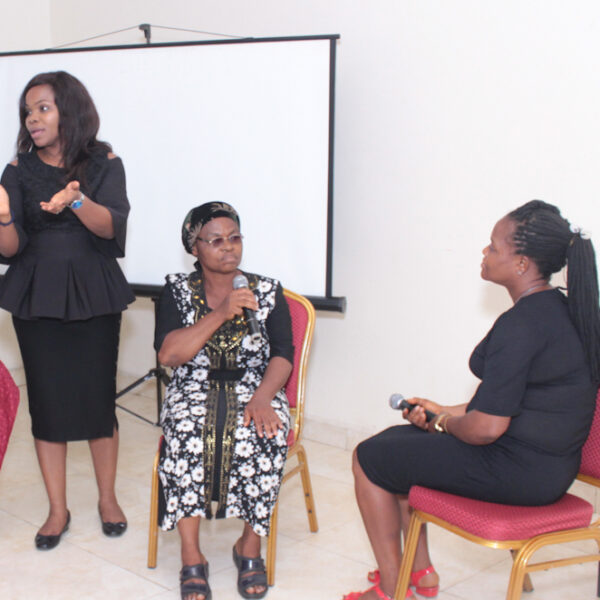
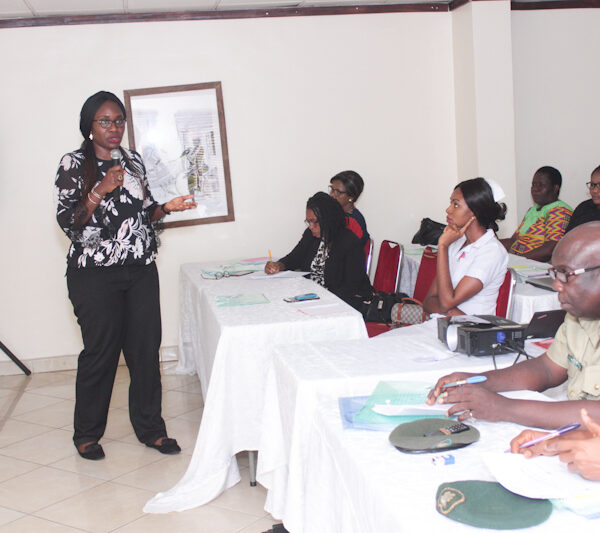
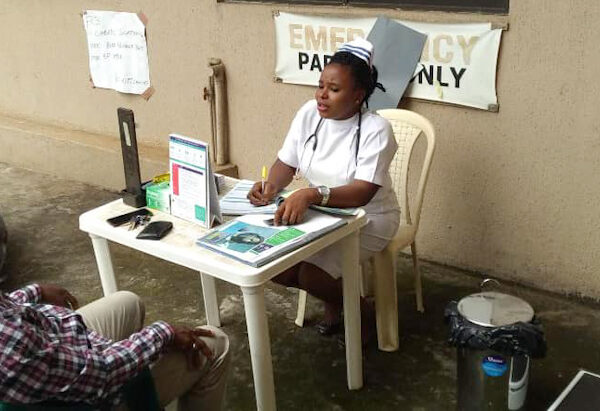
In the wake of the SARS COV-2 pandemic, emerging evidence has linked tobacco smoking with more severe disease. The World Health Organization (WHO) convened a review of studies by public health experts on April 29, 2020, and they found that smokers are more likely than non-smokers to develop severe disease with COVID-19 V.
In conclusion, there is a need to increase awareness of the dangers of tobacco use and strengthening the multisectoral response to tobacco control in Nigeria. These will limit the impact that tobacco-associated diseases could have on the Nigerian Health system which is already grappling with a triple burden of disease.
Source:
[i] World Health Organization. https://www.who.int/news-room/campaigns/world-no-tobacco-day/world-no-tobacco-day-2020/key-messages
S[i] World Health Organization. https://www.who.int/news-room/campaigns/world-no-tobacco-day/world-no-tobacco-day-2020/key-messages
[ii] World Health Organization https://www.who.int/en/news-room/fact-sheets/detail/tobacco
[iii] World Health Organization http://gamapserver.who.int/gho/interactive_charts/tobacco/use/atlas.html
[iv] Goodchild, M., Nargis, N. and d’Espaignet, E.T., 2018. Global economic cost of smoking-attributable diseases. Tobacco control, 27(1), pp.58-64.
[v] World bank https://data.worldbank.org/indicator/SH.XPD.OOPC.CH.ZS?locations=NG
v World bank https://t.co/AUS8VSUKnu?amp=1k
[vi] Momenabadi, V., Hashemi, S.Y. and Borhaninejad, V.R., 2016. Factors affecting hookah smoking trend in the society: a review article. Addiction & health, 8(2), p.123.
[vii] McNeill, A., Brose, L.S., Calder, R., Bauld, L. and Robson, D., 2018. Evidence review of e-cigarettes and heated tobacco products 2018. A report commissioned by Public Health England. London: Public Health England, 6.
[viii] McNeill, A., Brose, L.S., Calder, R., Bauld, L. and Robson, D., 2018. Evidence review of e-cigarettes and heated tobacco products 2018. A report commissioned by Public Health England. London: Public Health England, 6.
[ix] McNeill, A., Brose, L.S., Calder, R., Bauld, L. and Robson, D., 2018. Evidence review of e-cigarettes and heated tobacco products 2018. A report commissioned by Public Health England. London: Public Health England, 6.
[x] US Department of Health and Human Services, 2010. How tobacco smoke causes disease: what it means to you. Atlanta: US Department of Health and Human Services, Centers for Disease Control and Prevention. National Center for Chronic Disease Prevention and Health Promotion, Office on Smoking and Health.
[xi] U.S. Department of Health and Human Services. How Tobacco Smoke Causes Disease: What It Means to You. Atlanta: U.S. Department of Health and Human Services, Centers for Disease Control and Prevention, National Center for Chronic Disease Prevention and Health Promotion, Office on Smoking and Health, 2010
[xii] US Department of Health and Human Services, 2010. How tobacco smoke causes disease: what it means to you. Atlanta: US Department of Health and Human Services, Centers for Disease Control and Prevention. National Center for Chronic Disease Prevention and Health Promotion, Office on Smoking and Health.
Recent News
Grants and Business Development Specialist
We are seeking a highly motivated and experienced Grants and Business Development Specialist to join our organization. The successful candidate will be responsible for identifying funding opportunities, developing grant proposals, and fostering partnerships with potential donors and stakeholders (regional and global). This role plays a vital part in securing funds and resources to support our organization’s mission and projects.
Apply NowPublic Health Consultant, Guinea
The consultant (working with the Accelerator team) will collect results from the tool, organize a meeting with stakeholders to discuss results from the tool, and produce a report on key findings and recommendations from the tool to be shared publicly.
Apply NowPublic Health Associate, Senegal
We are currently in search of an experienced Public Health professional in Senegal to work on the anticipated Nutrition Capacity Development and Financing Platform and provide technical assistance to elevate nutrition financing and strengthen local capacity to support these efforts. The Associate must be bilingual (English and French).
Apply Now
